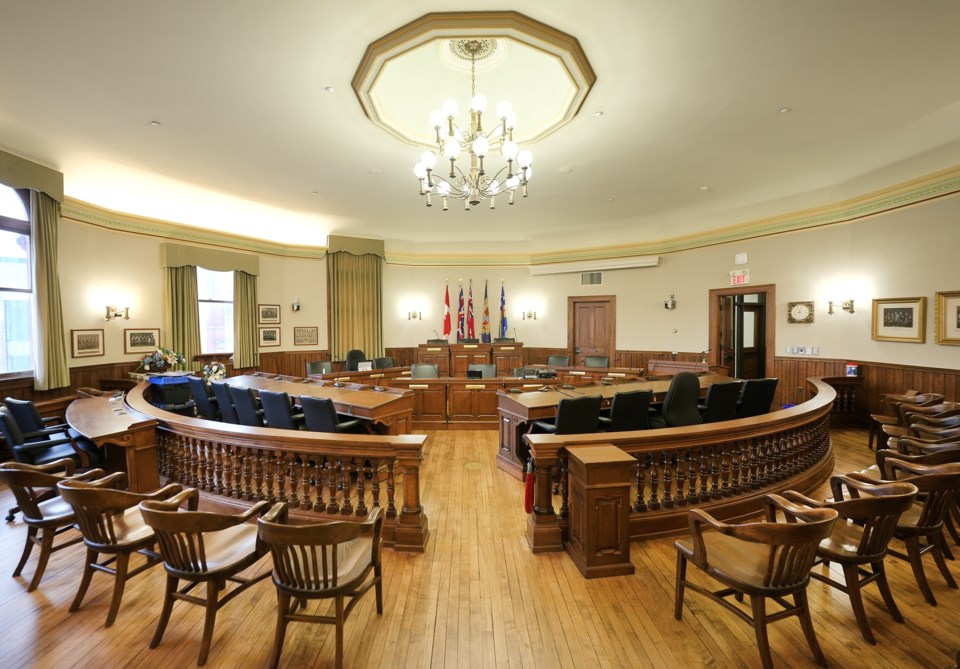After nearly two months of back and forth over various proposed expenditures, expansions and line items, Stratford has arrived at a tax rate increase of 5.41 per cent for 2025.
The final budget document still has to be approved by council, but the finance and labour relations sub-committee approved sending the draft budget to regular council for its approval after a lengthy meeting Thursday afternoon. Helping the committee get to the final number was a deferral motion from Coun. Lesley Biehn that will see the city push $60,000 in consulting fees for a traffic study to the 2026 budget discussions, and Mayor Martin Ritsma’s motion that $700,000 be taken from the city’s tax stabilization reserve to offset the tax levy increase for 2025.
That’s not to say the rest of the meeting didn’t have a little drama thrown into the mix. Ritsma kicked off the discussion by proposing that all requested expansions that affected the tax levy be deferred until next year. That proposed motion excluded the backflow prevention officer, and Biehn later added the Ontario Works caseworker position to that.
Giving his reasoning for the desired deferrals, Ritsma cited his concern for a tax increase that could become untenable if certain future events play out.
“We already know that the average grocery bill for people is $800 plus,” he said. “Our goal is to get the (tax levy) as low as possible while still providing service. But with the uncertainty around Canada-U.S. trade and tariffs, we don’t know what the fallout will be from that. I think it’s prudent to envision what that will mean locally.”
That motion was met with pushback from a number of councillors, including Brad Beatty. Saying that this is the 15th budget he’s worked on as a member of council, Beatty said he couldn’t agree to push off more responsibility to the future when they don’t know what the future is going to look like.
“We’re punting too many decisions, and we have to ask ourselves how expensive are we willing to make things (in the future),” he said.
The difference in savings between including the expansions and not was approximately $3 a month, according to calculations Coun. Harjinder Nijjar, and Jo-Dee Burbach then added that the difference in the cost didn’t warrant putting off the expansions.
“How do we move forward efficiently if we hold off on these positions,” she questioned. “If we want to develop lands and have economic growth, how will that happen? Outsourcing costs more money.”
Ritsma countered those points by citing a report that indicated Ontario could lose as many as 500,000 jobs if things get ugly with the United States, and he would rather see the city be prudent now as opposed to having to make tough choices on scaling back the expansions later this year if the economics dictate that. The motion wound up being defeated as a result of a tied vote.
Coun. Cody Sebben then got his two cents into the discussions, suggesting that he would like to send the budget back to staff so they could try to find better efficiencies and more savings to help bring down the levy. He even went as far as suggesting a target increase of only four per cent, which was met with a mix of skepticism and resistance.
“The same request was made of the police, with one councillor asking them to take their budget request back to look for areas where they could save money,” Sebben said. “I think we should be setting targets for staff, and this is not a reflection of their work to this point. We’re asking for over $300 more from people, but who represents the people who can’t afford this increase? People have to set their own budgets, and I don’t think we’re setting a hard line between needs and wants.”
Beatty countered that by suggesting any councillor who thinks there is still room to cut from the budget to provide the proof themselves.
“It’s up to council to determine the level of service we provide, so if you think there’s money to be found, find it,” he said. “The staff already came with their best effort.”
Burbach added comments that echoed Beatty’s sentiment about choice, saying either people have good programs that they pay for or they don’t have those programs at all.
“Who wants to step up and say which ones should be cut,” she asked.
Sebben’s motion was defeated in a 6-4 vote. A motion to send the draft budget to council for approval then passed by a 7-3 margin. Coun. Taylor Briscoe then put forward a motion asking if staff could provide a report on what is actually being downloaded to the municipality by other levels of government so residents would then have a clearer picture of what their taxes are going into.
Council will vote on the budget at an upcoming meeting, likely in February.
